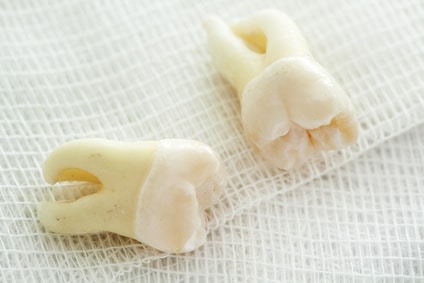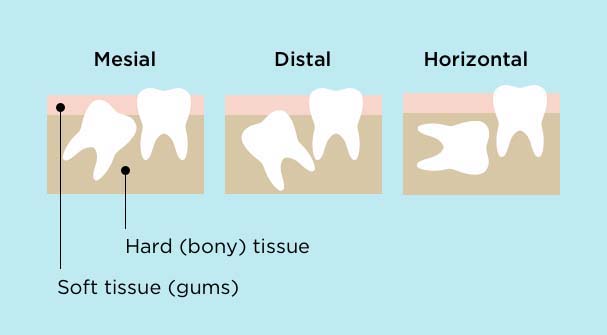Checking Out Various Sedation Options for a Comfortable Knowledge Teeth Extraction Experience
The usage of sedation during such procedures has become progressively usual to reduce stress and anxiety and pain. With a range of sedation choices offered, from regional anesthesia to basic anesthetic, each approach uses varying levels of relaxation and discomfort control.
Local Anesthesia
Regional anesthesia is a commonly used technique for numbing certain locations of the mouth throughout knowledge teeth removal procedures. By providing a regional anesthetic, such as lidocaine, a dental professional can guarantee that the person continues to be pain-free and comfy throughout the extraction procedure.
Among the main advantages of neighborhood anesthetic is its targeted numbing impact, which suggests that only the particular area being dealt with is impacted. This local strategy reduces the danger of systemic adverse effects and enables a quicker recuperation post-procedure. In addition, local anesthetic is considered to be a regular and secure technique in dental care, with minimal risks entailed when administered by a trained specialist.
Nitrous Oxide
Nitrous oxide, commonly known as chuckling gas, is a kind of sedation typically utilized in dentistry to help clients relax during dental procedures. This sedation option enables the client to stay mindful and responsive throughout the procedure while really feeling at ease and comfy.
Furthermore, nitrous oxide is known for its quick recuperation time. As soon as the mask is removed, the results of the gas diminish rapidly, enabling patients to resume their typical tasks without remaining sedative effects. This makes laughing gas a convenient choice for those that need to drive themselves home after the oral visit. In addition, nitrous oxide appropriates for patients of any ages, making it a versatile sedation alternative for wisdom teeth extractions and other dental treatments.
Dental Sedation
Oral sedation, a medicinal technique employed in dental care, involves the management of sedative medications by mouth to generate a relaxed state throughout oral procedures. The drugs suggested for oral sedation belong to a course of drugs called benzodiazepines, which have sedative, anxiolytic, and amnesic homes.
Unlike intravenous sedation, dental sedation does not require shots or needles, making it a much more comfy choice for people with a concern of needles. Furthermore, oral sedation is thought about safe and efficient when administered by qualified oral experts.
IV Sedation
Provided intravenously by trained physician, IV sedation is a powerful approach utilized to generate a controlled state of deep leisure and unconsciousness during dental procedures. Unlike oral sedation, which can be uncertain in its results, IV sedation permits precise control over the level of sedation, making it a perfect option for complicated treatments like wisdom teeth extractions.
During IV sedation, a sedative medicine is delivered straight right into the blood stream via a useful link vein, enabling it to take effect swiftly and effectively. This method makes sure that the patient remains unaware and comfortable of the procedure while still maintaining important features such as breathing and heart price.
One of the key benefits of IV sedation is its capability to provide a much deeper degree of sedation contrasted to other methods, making it especially suitable for clients with high degrees of stress and anxiety or those undergoing substantial dental work (wisdom teeth removal aspendale). In addition, the impacts of IV sedation usually diminish progressively after the procedure, lowering the chance of grogginess or remaining adverse effects. On the whole, IV sedation provides a risk-free and efficient option for making certain a comfy and worry-free experience during wisdom teeth removal

General Anesthetic
Having gone over the advantages of IV sedation for knowledge teeth extraction, the application of general anesthesia supplies a different choice for people needing a deeper degree of unconsciousness throughout dental procedures. General anesthetic induces a controlled state of unfamiliarity, making certain the person feels no pain or pain throughout the removal procedure. This method is specifically beneficial for people with extreme oral anxiety, complex medical demands, or those undergoing numerous removals concurrently.
General anesthetic is provided by an experienced anesthesiologist who closely monitors the individual's vital indications throughout the treatment. It entails the usage of intravenous medications or breathed in gases to generate a state of unconsciousness. While under general anesthesia, the person will certainly not be conscious of the surgical procedure, experience any type of discomfort, or have any kind of recollection of the treatment afterward.
Although basic anesthetic is risk-free when carried out by certified professionals, it lugs a somewhat higher threat contrasted to other sedation choices - wisdom teeth removal aspendale. Patients thinking about basic anesthesia for knowledge teeth removal need to discuss the possible threats and advantages with their dental expert or dental visit this site right here doctor to make an informed choice based upon their individual needs and case history

Conclusion
To conclude, numerous sedation alternatives are available to make certain a comfortable knowledge teeth removal experience. Regional anesthesia is frequently used for numbing the specific area, while nitrous oxide offers leisure and discomfort alleviation. Oral sedation and IV sedation offer much deeper degrees of leisure, relying on the patient's requirements. General anesthesia can be utilized for much more complex situations. It is essential to speak with your dentist or dental cosmetic surgeon to Go Here figure out the most appropriate sedation option for your treatment.
Nitrous oxide is suitable for individuals of all ages, making it a versatile sedation choice for wisdom teeth extractions and other oral procedures.

Comments on “The Advantages of Professional Wisdom Teeth Removal Aspendale for Your Oral Health”